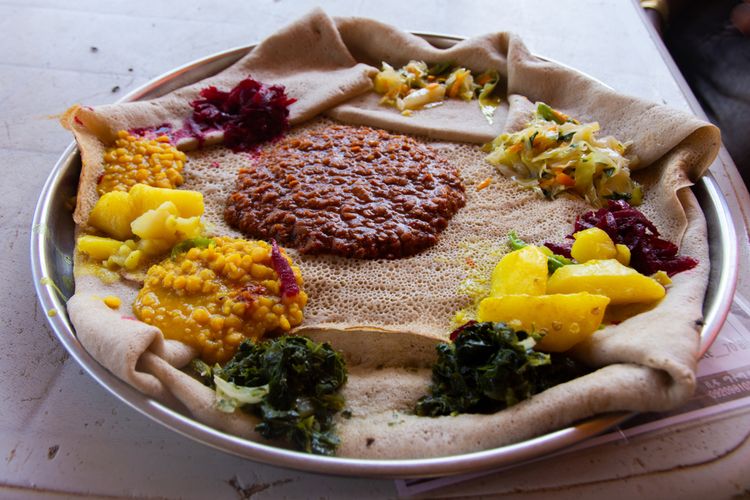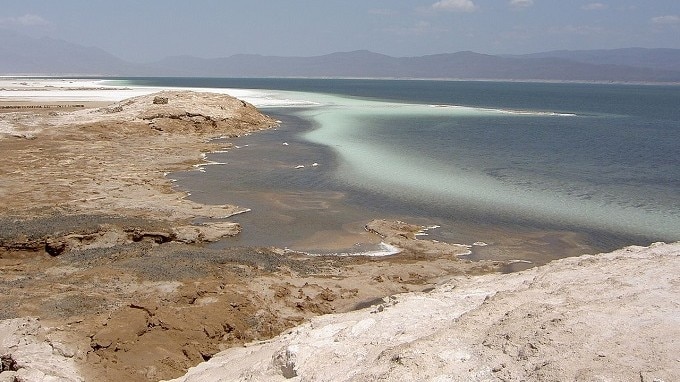Djibouti Travel Tips and Information
Official Name
Republic of Djibouti
Capital
Djibouti
Population
Country Code
Approximately 1.1 million
DJ
Country Code (international calls)
+253
The flight time to Djibouti is approximately ---- hours. Check the climate, currency, religion, manners, other information of Djibouti below. Wishing you pleasant travels to Djibouti.
Djibouti is a small country located in East Africa, bordered by the sea. It is surrounded by Eritrea to the north, the Gulf of Aden and the Red Sea to the east, Somalia to the southeast, and Ethiopia to the west. Sometimes it is also classified as part of the Middle East. Its area is about the same size as Kanagawa Prefecture in Japan.
Local Climate / Weather
Djibouti has a hot, arid climate, with high temperatures and low rainfall for most of the year. The coastal areas are hot and humid, while the inland regions are drier and can be even hotter. Djibouti’s summer, from June to August, is extremely hot, with temperatures often reaching above 40°C (104°F). Winter, from November to February, is slightly cooler, with temperatures typically ranging between 23°C and 30°C (73°F to 86°F), making it the most comfortable time to visit. Rainfall is sparse and mainly occurs in the cooler months, though it remains light and short-lived. Travelers should prepare for heat throughout the year, especially in summer. For seasonal travel, the best time to visit Djibouti is from November to February when temperatures are more moderate and conditions are more comfortable for outdoor exploration. During these months, visitors can enjoy trekking, diving, and other activities without the intense summer heat. The spring months of March through May can also be favorable for travel, although temperatures begin to rise again. It’s advised to avoid visiting in summer unless well-prepared for extreme heat, as sightseeing and outdoor activities can be challenging in the high temperatures. Djibouti hosts several unique festivals and events that provide insight into its rich culture. One of the most notable events is Independence Day on June 27, celebrating Djibouti’s independence from France with parades, music, and traditional dances. The Festival of the Sea, typically held in October, is another highlight, focusing on the country’s maritime culture with water sports competitions and cultural displays along the coast. For those interested in Islamic traditions, Ramadan is observed widely, and visiting during this period can offer a unique perspective on Djibouti’s cultural and religious practices, though travelers should be mindful of local customs, such as fasting hours.
Currency & Tipping
Currency
Djibouti’s official currency is the Djiboutian franc (DJF), which is used in both coins and banknotes. Banknotes are available in denominations of 1,000, 2,000, 5,000, and 10,000 francs, while coins come in smaller denominations like 1, 2, 5, 10, 20, 50, and 100 francs. The franc is typically stable and widely accepted throughout the country. Travelers will find options at major hotels, banks, and exchange bureaus in Djibouti City, the capital. U.S. dollars and euros are also widely accepted and can easily be exchanged for Djiboutian francs. It’s advisable to carry small denominations of francs for everyday expenses, as larger bills can be challenging to break in some places.
Tipping
Djibouti does not have a formal tipping culture, but it is appreciated in the service industry. A tip of around 10% of the bill is generally welcomed in restaurants if service is not included, and small tips for hotel staff and taxi drivers are also customary as a gesture of gratitude for good service.
Useful Travel Information

Voltage & Electrical Outlets
The standard voltage is 220-240 volts with a frequency of 50 Hz, and outlets are typically Type C and Type E, which are commonly used in Europe. Travelers should bring a universal adapter if their devices are not compatible with these plug types, as adapters may not be readily available in local stores.

Internet Connectivity
The internet environment in Djibouti is relatively limited, with internet access mainly concentrated in urban areas like Djibouti City. While Wi-Fi is available in many hotels and cafes, the connection can be slow, and mobile data may be costly. It’s advisable for travelers to check with their accommodations for internet options and consider purchasing a local SIM card for basic connectivity needs.
Water for Consumption (Drinking Water)
Drinking tap water in Djibouti is generally not recommended, as it may not meet safety standards. Bottled water is widely available and is a safer option for drinking, brushing teeth, and preparing food. Travelers should carry bottled water when exploring, especially given the hot climate, to stay hydrated and avoid waterborne illnesses.
Culture, Religion & Social Etiquette
Culture
Djibouti is a culturally rich nation where traditional customs blend with modern influences, creating a unique and vibrant society. Djiboutian culture is influenced by the traditions of its Somali, Afar, and Arab communities, which are reflected in their music, dance, and colorful attire. Festivals, folk dances, and poetry recitations are common expressions of their heritage, and the warmth and hospitality of the locals make it easy for visitors to experience this culture firsthand.
Religion
Islam is the predominant religion in Djibouti, with the majority of the population practicing Sunni Islam. As such, Islamic customs are deeply woven into daily life, and visitors will notice the call to prayer, modest dress standards, and observance of religious holidays like Ramadan. Travelers will be welcomed with hospitality, and understanding these religious practices will enrich their experience and interactions with the locals.
Social Etiquette
Djiboutians place high value on respect and courtesy, particularly in family and community settings. Public displays of affection are generally avoided, and dressing modestly is encouraged, especially in rural areas and religious sites. Travelers will find that Djiboutians appreciate friendly greetings and politeness in everyday interactions, and learning a few basic phrases in Arabic or Somali can help create positive connections with locals.
Food Culture
Djibouti’s food culture is a flavorful mix of African, Arab, and French influences, creating a cuisine that is both unique and satisfying. Staple dishes often include spiced meats, rice, and flatbreads like lahoh, a traditional soft bread commonly eaten with stews or honey. Seafood is abundant along the coast, with grilled fish and shrimp often seasoned with aromatic spices. Street food in Djibouti City offers an authentic taste of local flavors, with popular options such as sambusas (spiced meat-filled pastries) and grilled meats available at markets and food stalls. Travelers looking for a memorable dining experience can visit recommended restaurants like Café de la Gare and Melting Pot, both known for their quality dishes and friendly atmosphere. Djibouti’s cuisine offers a rich, diverse experience that highlights the country’s vibrant culinary traditions.
Major Tourist Attractions & UNESCO World Heritage Sites
Major Tourist Attractions
Djibouti boasts an array of stunning natural and cultural attractions that offer unique experiences for travelers. One of the major tourist destinations is Lake Assal, a surreal, salt-filled lake and one of the lowest points in Africa, where visitors can float effortlessly due to the high salinity. This volcanic landscape, with its white salt flats and turquoise waters, is perfect for photography and exploration. Another must-visit is Tadjoura, one of the oldest towns in Djibouti, where travelers can stroll through its historic streets and enjoy pristine beaches ideal for swimming and snorkeling. Adventure seekers can head to Day Forest National Park in the Goda Mountains, where lush forests, unique flora, and diverse wildlife make it a prime spot for hiking and birdwatching. These destinations provide a rich mix of outdoor activities and breathtaking scenery, catering to a wide range of traveler interests.
UNESCO World Heritage Sites
Djibouti also has World Heritage Sites recognized for their historical and environmental significance, which travelers may find fascinating. The Abbe Lake and Lake Assal region have been nominated for UNESCO World Heritage status due to their rare landscapes and biodiversity, including unique geological formations and endemic species. Though not yet officially designated, these areas are often promoted as cultural and natural heritage sites and offer extraordinary views and experiences for visitors. The Gulf of Tadjoura, with its vibrant coral reefs, is another heritage treasure, known for incredible diving opportunities, where visitors can encounter whale sharks, dolphins, and colorful marine life. Exploring these sites gives travelers a rare opportunity to connect with Djibouti’s natural beauty and geological wonders, creating unforgettable memories.
Travel FAQs
What is the safety situation in Djibouti like? What should travelers be careful of?
Djibouti is generally safe for travelers, but travelers should exercise increased caution due to potential risks of terrorism and crime. It's advisable to stay vigilant in public places, avoid travel near the Djibouti-Eritrea border, and adhere to local laws and customs.




